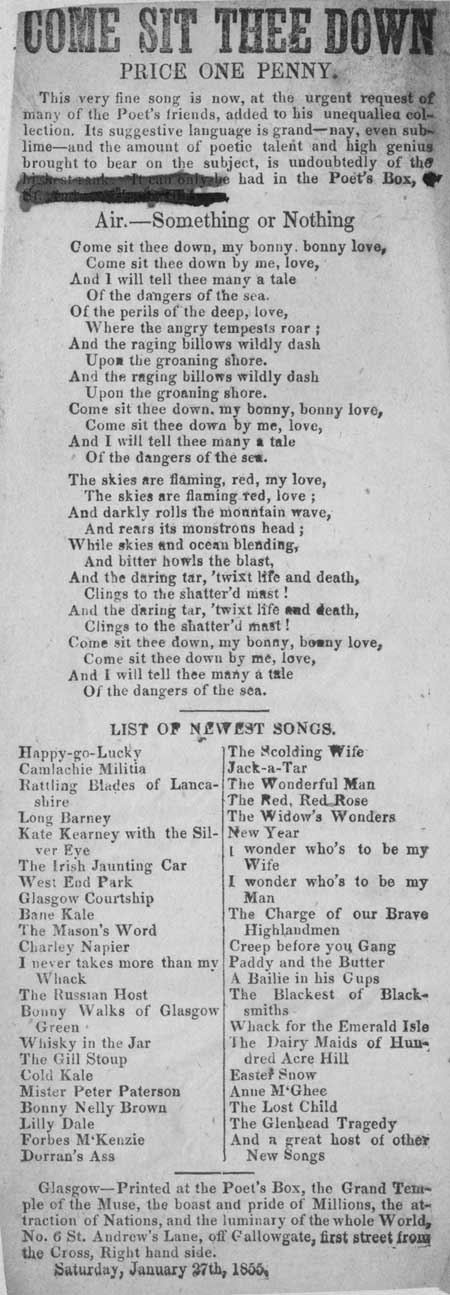Commentary
This ballad begins: 'Come sit thee down, my bonny bonny love, / Come sit thee down by me, love, / And I will tell thee many a tale of the dangers of the sea. / Of the perils of the deep, love'. Published in 1855 by the Poet's Box of Glasgow, this ballad is to be sung to the tune of 'Something or Nothing' and cost a penny. Although the lettering has been partly erased, it is still possible to read that the sheet was published in Glasgow by the Poet's Box. It is most likely that the 'poet' is therefore Matthew Leitch, its proprietor at the time, who was known for composing many of his own publications. With this knowledge, the introduction, where 'the poet' says that the language is 'grand---nay, even sublime', seem rather boastful!
The Poet?s Box in Glasgow operated from 1849 to 1911. Matthew Leitch was the proprietor at 6 St. Andrew Lane?s, a narrow street on the south side of Gallowgate, from 1850 to 1858. His son William Munsie Leitch worked at the same address from 1859 to 1865 and at varous addresses in London Street until 1911. Many of the broadsides published by the Glasgow Poet?s Box were dated and some carried advertisements, not just for printed items but also for shoe blacking and ?soap for lovers?! Like the other ?boxes? in Dundee and Edinburgh, the Glasgow one sold love songs, sea shanties, parodies and dialogues. It is not clear what the connection between the different Poet?s Boxes were. They almost certainly sold each other?s sheets. It is known that John Sanderson in Edinburgh often wrote to the Leitches in Glasgow for songs and that later his brother Charles obtained copies of songs from the Dundee Poet?s Box. There was also a Poet?s Box in Belfast from 1846 to 1856 at the address of the printer James Moore, and one in Paisley in the early 1850s owned by William Anderson.
Early ballads were dramatic or humorous narrative songs derived from folk culture that predated printing. Originally perpetuated by word of mouth, many ballads survive because they were recorded on broadsides. Musical notation was rarely printed, as tunes were usually established favourites. The term 'ballad' eventually applied more broadly to any kind of topical or popular verse.
View Transcription | Download PDF Facsimile
|
 |
Date of publication:
1855 shelfmark: L.C.Fol.70(128a)
 View larger image
View larger image
|


